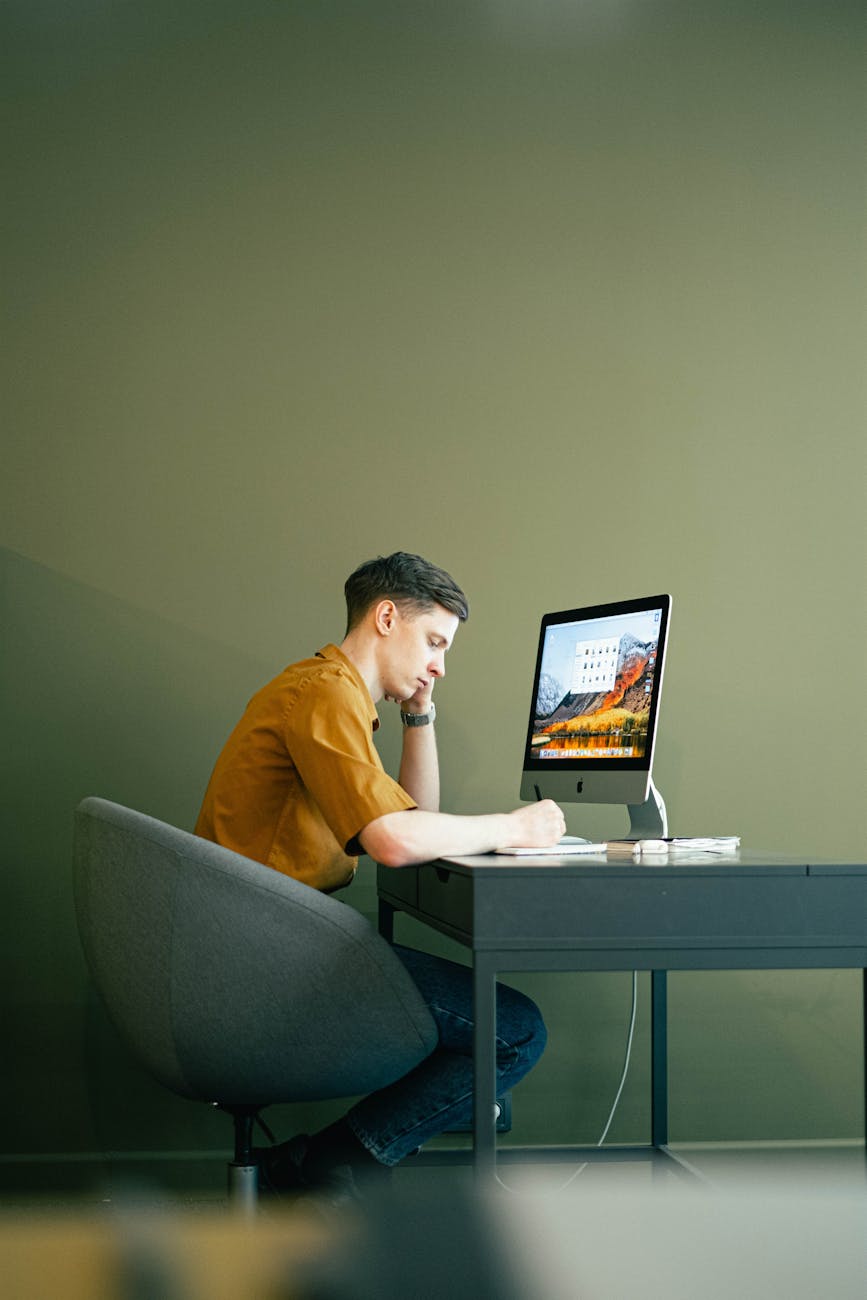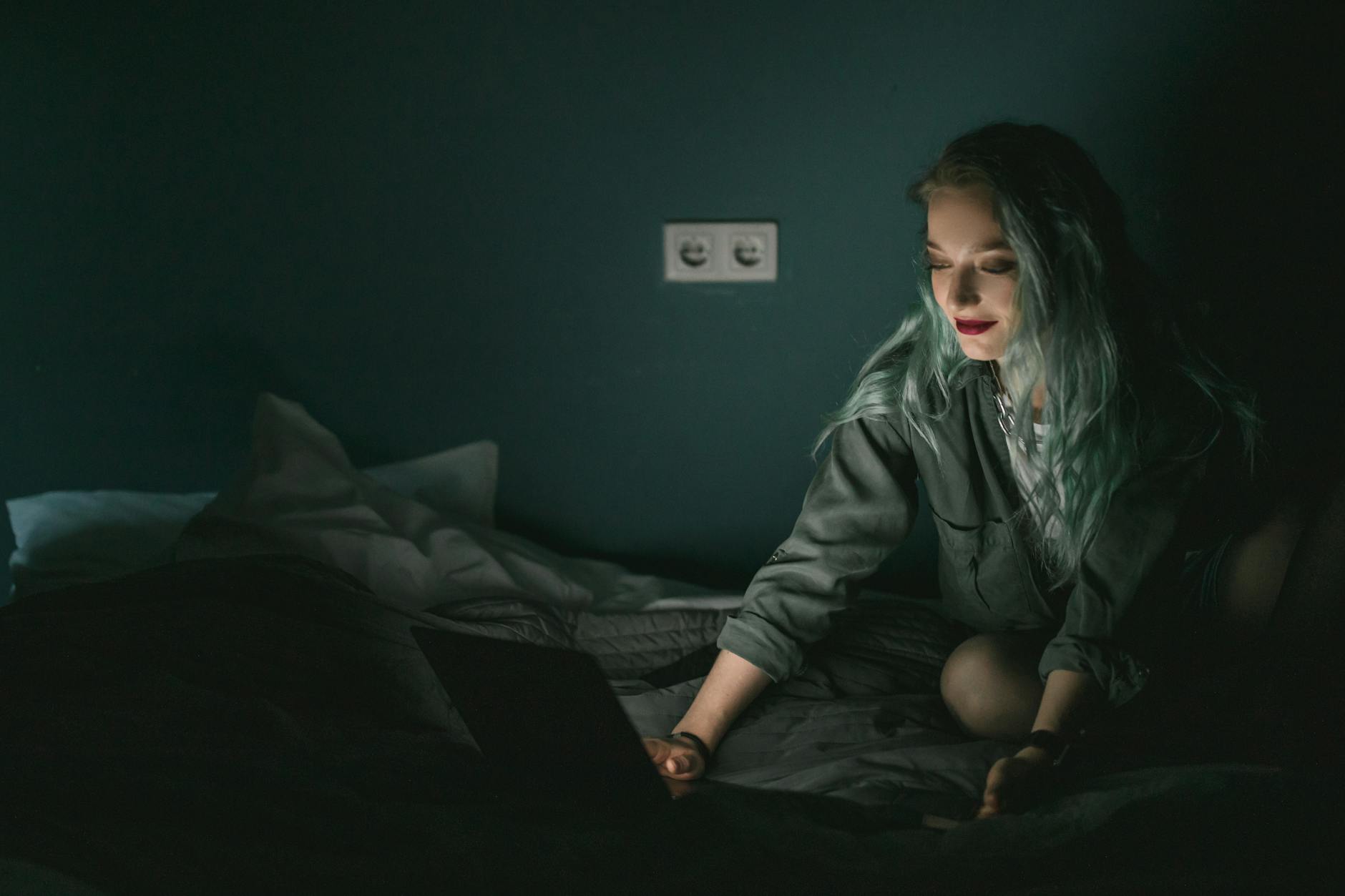Understanding Blue Light: Shedding Light on Your Screens
What is Blue Light?
Blue light is a type of light with a short wavelength and high energy, making it visible to the human eye. It’s everywhere, from the sun’s rays to the screens of our electronic devices.
Ever noticed how your phone or laptop screen emits a bluish glow, especially at night? That’s blue light at work! But it’s not just our screens; blue light is also found in LED lighting, fluorescent bulbs, and even the headlights of cars.
Where Does it Come From?
You might be surprised to learn that the biggest source of blue light exposure for many people is their digital devices. Whether you’re scrolling through social media on your phone, binge-watching your favorite show on your laptop, or studying late into the night on your tablet, you’re bathing your eyes in blue light.
But it’s not just our gadgets that emit blue light; natural sources like the sun also contribute. Yep, that’s right, even on cloudy days, the sun is bombarding us with blue light. And while a little sunshine is good for the soul, too much exposure to blue light can have some not-so-great effects on our health.
Why Does it Matter?
Blue light plays a crucial role in regulating our sleep-wake cycle, also known as our circadian rhythm. Exposure to blue light during the day can boost attention, reaction times, and mood. But when we’re exposed to blue light at night, it can interfere with our ability to fall asleep and stay asleep.
But wait, there’s more! Prolonged exposure to blue light, especially from screens, can lead to digital eye strain. Symptoms include dry eyes, headaches, blurred vision, and even neck and shoulder pain. So, while our screens might keep us entertained and connected, they can also take a toll on our eye health if we’re not careful.

Unlocking the Mysteries of Blue Light: A Peek into Eye Health
The Bright Side of Blue Light?
Let’s face it, blue light is everywhere, from the sun’s rays to the screens of our digital devices. But is all that blue light really as harmless as it seems? Well, not quite. While a little blue light during the day can boost attention and mood, too much of it, especially at night, can wreak havoc on our eye health.
Digital Dilemma: How Screens Impact Our Eyes
Ah, the joys of binge-watching our favorite TV shows or scrolling through social media feeds late into the night. But did you know that all that screen time can take a toll on our eyes? Yep, prolonged exposure to blue light from screens can lead to digital eye strain, also known as computer vision syndrome. Symptoms include dry eyes, headaches, blurred vision, and even neck and shoulder pain. So, the next time you’re glued to your phone or laptop, remember to give your eyes a break now and then.
Sleep Stealer: Blue Light’s Role in Sleep Disturbances
Ever wonder why you have trouble falling asleep after a late-night Netflix marathon? Well, you can thank blue light for that. Blue light exposure, especially in the evening, can mess with our body’s natural sleep-wake cycle, also known as our circadian rhythm. How? By suppressing the production of melatonin, the hormone that helps regulate sleep. So, if you find yourself tossing and turning at night, it might be time to dim those screens and give your eyes—and your sleep—a much-needed break.

Blue Light Blockers: Separating Fact from Fiction
Curious about the hype surrounding blue light blocking glasses? Well, buckle up, because we’re about to dive into the science-backed benefits that these trendy specs can offer. From reducing eye strain to improving sleep quality, there’s more to blue light blockers than meets the eye!
Easing Eye Strain: A Sight for Sore Eyes
Let’s face it—our eyes weren’t designed to stare at screens all day. But fear not, weary-eyed warriors, because blue light blocking glasses are here to save the day! These magical specs work by filtering out the harmful blue light emitted from digital screens, reducing eye strain, fatigue, and those pesky headaches that often come with prolonged screen time. So, the next time you’re burning the midnight oil studying for that exam or binge-watching your favorite show, slip on a pair of blue light blockers and give your eyes the break they deserve.
Sweet Dreams: The Sleep-Boosting Power of Blue Light Blockers
Struggling to catch those Z’s? You’re not alone. But before you reach for that bottle of sleeping pills, consider this—blue light blocking glasses might just be the sleep solution you’ve been searching for. You see, exposure to blue light, especially in the evening, can disrupt our body’s natural sleep-wake cycle by suppressing the production of melatonin, the hormone that regulates sleep. By wearing blue light blockers in the evening, you can reduce your exposure to blue light and signal to your body that it’s time to wind down and prepare for sleep. So, slip on those specs, cozy up with a good book, and get ready for some sweet dreams!
Boosting Focus and Productivity: A Clear Vision for Success
Feeling like your brain is in a fog? Don’t worry, we’ve all been there. But here’s the good news—blue light blocking glasses might just be the secret weapon you need to sharpen your focus and boost your productivity. How? By reducing eye strain and fatigue, these glasses help keep your peepers fresh and your mind sharp, allowing you to power through those long study sessions or workdays with ease. Plus, by improving sleep quality, blue light blockers can leave you feeling more alert and energized during the day, giving you the edge you need to tackle whatever life throws your way. So, what are you waiting for? Grab a pair of blue light blocking glasses and see the world—and your productivity—more clearly than ever before!

Lighten Up: Simple Ways to Reduce Blue Light Exposure
Welcome to the ultimate guide on how to give blue light the cold shoulder and reclaim your visual sanity! Whether you’re a night owl glued to your screen or a daytime digital diva, these tips will help you dial down the blue light exposure and give your eyes the TLC they deserve.
Dim the Lights, Brighten Your Health
First things first—let’s talk lighting. Swap out those harsh, fluorescent bulbs for softer, warmer options like incandescent or LED lights with adjustable brightness settings. By dimming the lights, you’ll not only create a cozy ambiance but also minimize your exposure to blue light, especially during those evening hours when your body is gearing up for some much-needed shut-eye.
Embrace the Night Mode: A Screen Savior
Meet your new best friend: night mode. Most smartphones, tablets, and computers come equipped with a handy-dandy night mode feature that reduces the amount of blue light emitted by your screen after sunset. Simply enable this feature, and voila! You’ll enjoy a warmer, gentler glow that’s easier on the eyes and won’t disrupt your body’s natural sleep cycle. Sweet dreams, indeed!
Get Outdoors and Soak Up Some Sun
Here’s a bright idea—spend more time outdoors soaking up that glorious sunshine! Not only does natural light boost your mood and energy levels, but it also helps regulate your body’s internal clock, making it easier to fall asleep at night. So, take a break from the digital grind, step outside, and bask in the sun’s golden rays. Your eyes—and your overall well-being—will thank you!
Filter Out the Blues: Blue Light Blocking Glasses
When all else fails, it’s time to bring in the big guns—blue light blocking glasses! These trendy specs work wonders by filtering out the harmful blue light emitted by digital screens, reducing eye strain, fatigue, and those pesky headaches that often come with prolonged screen time. Plus, with stylish frames to suit every taste, you can rock your blue light blockers with confidence, knowing that you’re giving your eyes the protection they need while staying on trend. So, why wait? Slip on a pair of blue light blocking glasses and see the world in a whole new light!


